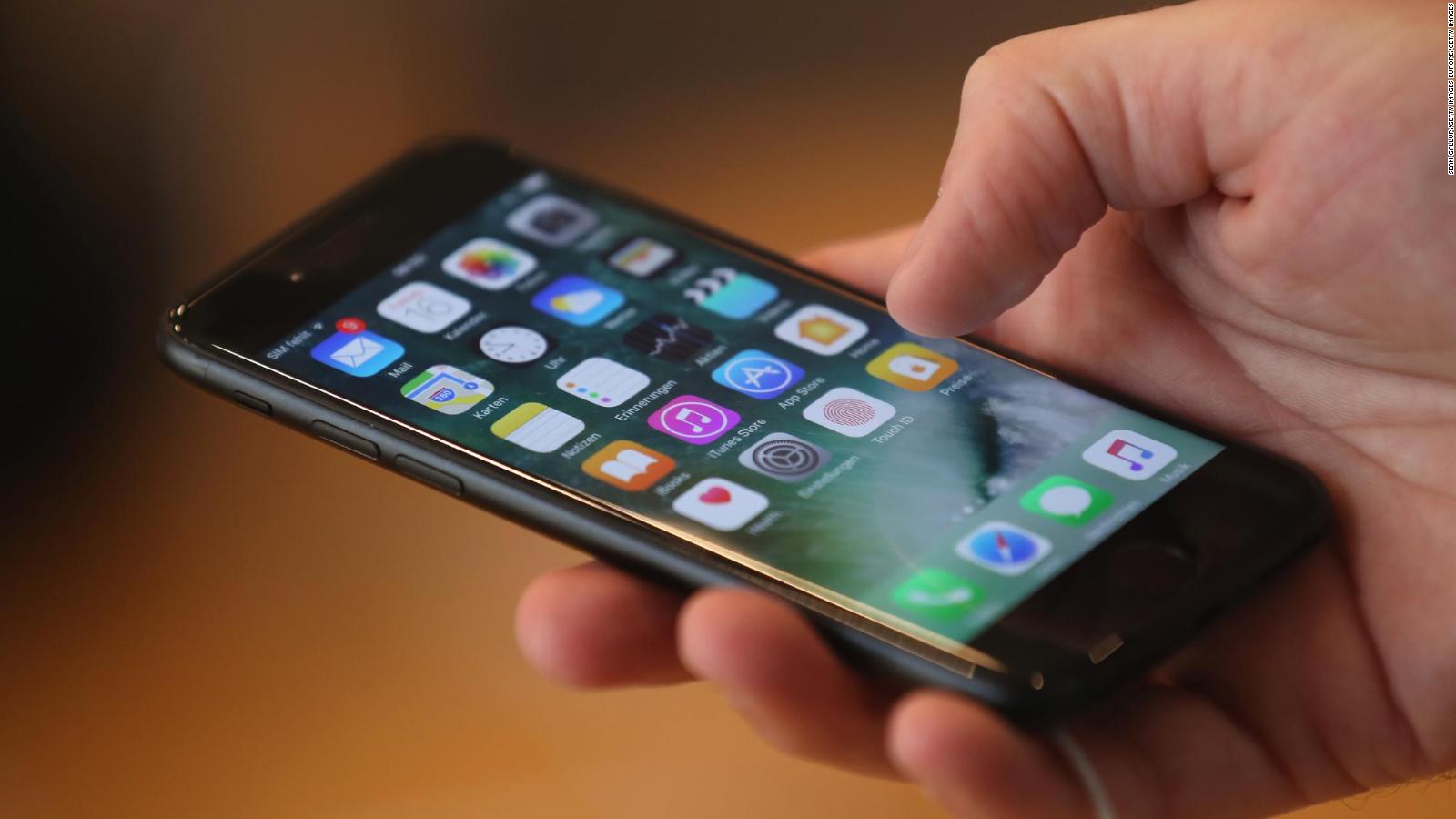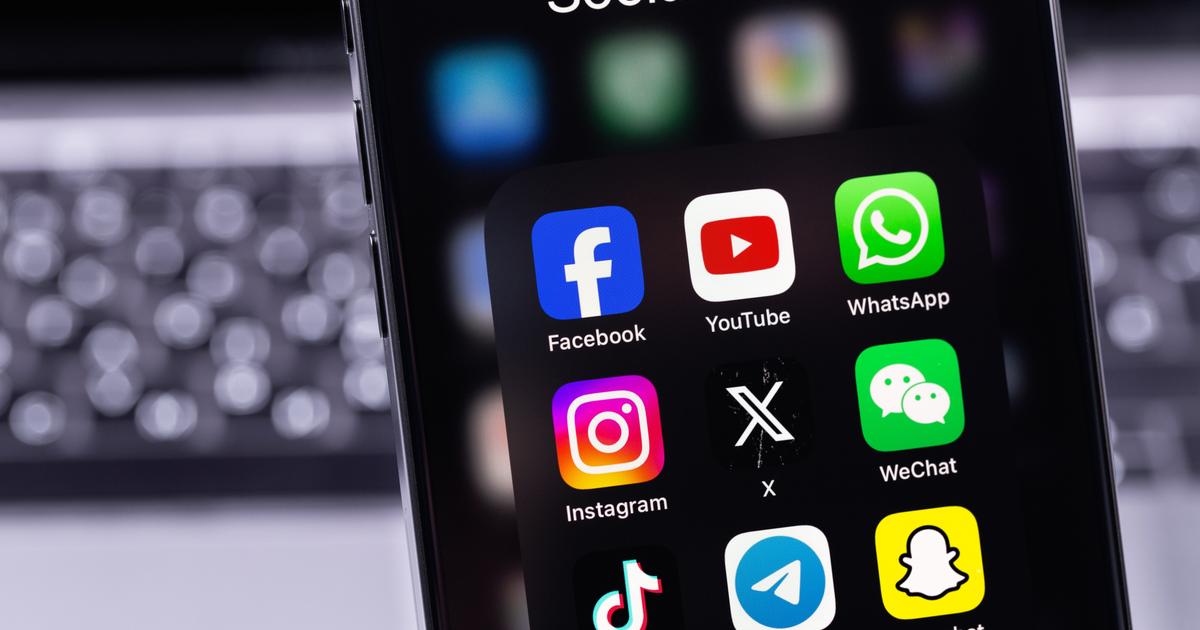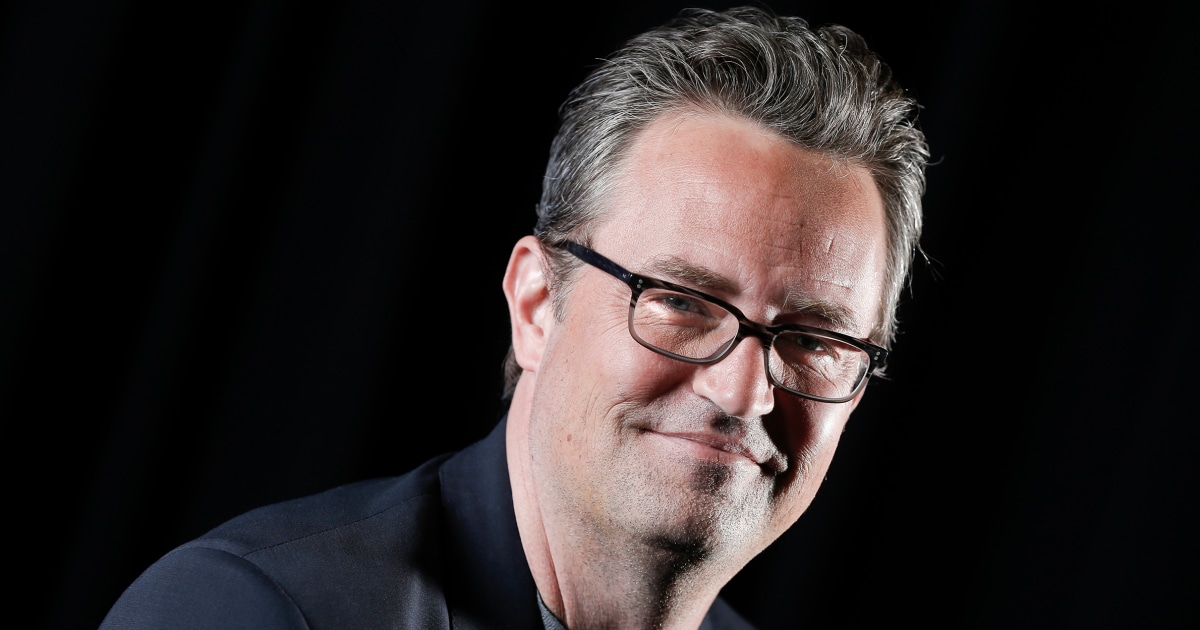Lessons from the Facebook Blackout 1:12
(CNN Spanish) -
You have your cell phone in your hand all the time.
You open your social networks, you look at the phone for a long time, browsing automatically.
You put your phone away, but only a few minutes later you open it again to continue seeing the same social networks that you just saw.
The action is repeated several times a day.
Is this a familiar scene?
What makes social media so attractive ... or addictive?
The "charm" of social networks
The networks connect us with others, they are visually attractive, they offer us content about people, activities, places of our interest, but "they are designed in a way that promotes the repetition of their use," Carolina Vidal, assistant professor of psychiatry, told CNN and behavioral sciences, from the Johns Hopkins University School of Medicine.
"Most social networks have a common characteristic - the" like "- that reinforces the behavior of the person who shares the comment or photo, promoting its repetition. The" likes "have been shown to be equivalent to reinforcing money or rewards social, "said Vidal.
The explanation for why we cannot stop using them is in the brain.
advertising
Many people are drawn to frequent - almost addictive - use of social media because it triggers brain chemicals and other rewards that make them want more of it, Dr. Mitch Prinstein told CNN , Scientific Director of the American Psychological Association (APA).
"We are all interested in enjoyable social interactions, but research shows that social media and its focus on quantified likes, or frequent notifications, appear to be associated with activating areas in the brain that make us not only enjoy these interactions, but biologically yearn for more of them, "Prinstein said via email.
"These are the same brain regions associated with addiction to illegal substances," added the APA scientific director.
Likes, Angry Emojis, and RSVP: The Math Behind Facebook's News Feed, And How It All Went Wrong
Tim Cook: I'm worried that people think like machines 0:48
According to Prinstein, between the ages of 10 and 12 the brain "increases the ability to receive signals from dopamine and oxytocin," which makes people crave attention, visibility and seek a place within their social group.
"Social media capitalizes on this biological change by giving us a platform to look for that biochemical reaction literally 24 hours a day, 7 days a week, 365 days a year," Prinstein said, noting that it is something "dangerous because it is not the way humans are used to interacting with each other. "
And this generates vulnerabilities.
But it is not always problematic to use social networks.
"Most people seem to use social media in a healthy way," Paul Croarkin, a child psychiatrist at the Mayo Clinic in Rochester, Minnesota, told CNN in an email.
"It is important to realize that not everything is wrong with them, and that they can provide unique opportunities to build social relationships and be supportive when used in a healthy way," added Croarkin.
Personal data, likes and billions of dollars: how much are social networks worth?
Facebook prefers money to the public good, whistleblower 3:04
Networks seek to "satisfy needs"
Social networks know you.
They know, through an algorithm, what you like, what catches your attention the most and that is why they offer you content that makes you spend more time there, but there is a need that you need to satisfy if you have a problematic use of the networks, Enrique Pumar, a sociologist at the University of Santa Clara in California, told CNN.
"Addiction to social networks is due to satisfying a need, a curiosity that human beings have always had because we are social beings and we are intrigued by the well-being of others," said Pumar.
According to the sociologist, through social interaction human beings form their self-esteem and even their identity, so a constant interaction - or use - in social networks, in which we are attentive to the lives of other people, and how they They think about us can be key "to form a lot of our values, hence the addiction continues."
"The addiction to the networks is nothing more than a social need that today is manifested through a platform and in a broader and more democratic way because everyone who has access to the network, and not everyone has it, of course, can participate "he added.
Prinstein of the APA says that a "taste" for social media can be as problematic as an addiction to drugs, gambling, or video games.
ANALYSIS |
Recent Facebook Scandals Reveal Two Truths About Social Media
Why did addictions increase during the pandemic?
4:39
Not everything is "addiction" ... just attraction
Do not worry.
The mere fact that you have a taste ... let's say ... "excessive" for being on social networks does not make you an "addict", but you have to be aware of the signs.
Addiction "is a chronic brain disorder related to reward, motivation, brain circuits, memory and when you are using either a substance or a behavior you get to the point where it ultimately has negative consequences on your life, "said Dr. Ashish A. Bhatt, director of medical content for the Center on Addiction and an addiction specialist, said in a podcast.
The Addiction Center is part of a company that operates multiple facilities in the United States dedicated to addiction recovery.
So far there is no official diagnosis and accepted drug of "addiction" to phones or social networks, but there are symptoms or criteria that can activate alerts when there is excessive use of these platforms.
"Although there is no formal diagnosis for addiction to social networks ... it is evident that some people have a problematic or compulsive use of social networks. Some experts estimate that up to 10% of people have this use problematic or excessive that could be conceptualized as an addiction, "Dr. Croarkin of the Mayo Clinic told CNN en Español.
Differentiating overuse from an addiction can be difficult, according to Dr. Vidal.
"It is difficult to differentiate between normal and pathological because, for example, adolescents today are saturated with activities on the internet, spending around 6 to 9 hours a day on these platforms. This inevitably leads to less activity in other areas of life than they are important, "said the expert from Johns Hopkins University.
"When the person is not able to control the use, or the use takes up a lot of their life, causes stress and problems at work, school or mental health, it is important to be alert," she added.
Signs to be aware of a possible addiction to social networks
Some behaviors to watch out for, according to Croarkin, include:
Spending excessive time using or constantly checking networks
Focusing on them most of the time in a way that interferes with everyday life
Difficulty not using social media for short periods of time
Compulsive urge to enter an account
Irritability or anger when unable to access social media
Feelings of loneliness, low self-esteem and anger at not being able to use the networks.
Limited ability to think deeply or creatively.
"We should ask ourselves if we are staying on social media sites longer than expected, if we have tried to spend less time using them but have had a hard time stopping, and if we have worked hard to ensure we have access to social media. These are all signs of addiction." said Prinstein of the APA.
But Croarkin insists that just using social media does not make us addicted or that its use is harmful.
"It is important to realize that not all use of social media is unhealthy, and many people use it effectively as an emotional support and communication tool," he told CNN.
Two young people say that Instagram put their lives at risk 4:58
Other dangers of addictive use of social networks
Social media has opened windows to a world of possibilities, "it has removed geographic barriers and given us unique opportunities to create near-instant connections with others," Croarkin said.
But physical interactions have also decreased.
"Paradoxically, social media can also diminish other important forms of face-to-face communication, reducing opportunities for close bonding, increasing feelings of loneliness in some people, and potentially contributing to conditions such as depression and other emotional problems," Croarkin added. .
They can also create a universe parallel to our real life.
"We tend to believe that what we see is real, that all 'likes' represent how people really feel, and that 'current affairs' reflect what most people believe," Prinstein said.
"All of these are false, but many people, especially children and adolescents, change the way they think and act based on what they see online."
The networks can also "quietly break the self-esteem" of some people, such as adolescents, who are some of the most affected by their excessive use.
According to research by parent company Facebook, Instagram can have a negative impact on the mental health and body image of teenagers, especially girls.
Frances Haugen, a former product manager at Facebook, revealed documents showing that the platform knows that it is used to spread hate, violence and disinformation, and that it has tried to hide that evidence.
According to Haugen, the company prioritized profit over the public good.
Facebook has aggressively dismissed the reports, calling many of the claims "misleading" and arguing that its apps do more good than harm.
Although there are risks when using social networks without control, it is not about demonizing them just for their existence, but knowing how to use them.
"It is not about eliminating or removing from your life a social network, a drug, sex, but to make good use of them," he said.
Tips to control excessive cell phone use
1. Identify that there is something you want to improve regarding the use of your phone or social networks.
2. Record how long you use your phone
3. Set time limits to use networks
4. Know the factors that trigger its use
5. Dismiss the fears that you will lose something if you do not check the phone
6. Choose healthier activities
7. Establish areas where the phone is prohibited
8. Practice sleep hygiene
9. Disable notifications
10. Remove permissions so you can use applications on your laptop
11. When you are with friends, stack all phones to prevent their use during meetings social.
12. Increase social interactions in person
Where to seek help if you have an addiction?
The Substance Abuse and Mental Health Services Administration offers a website where you can enter your zip code and get directions to nearby treatment centers.
The agency also offers a toll-free 24-hour hotline for treatment and support referrals: 1-800-662-HELP (4357). Calls are confidential and offered in English and Spanish.
According to the National Survey on Drug Use and Health, about 10 million Americans, ages 12 to 29, need treatment for substance abuse and addiction.
Partnership for Drug-Free Kids offers a toll-free hotline: 1-855-DRUGFREE (378-4373) to assist parents seeking help for their children.
AddictionSocial media









